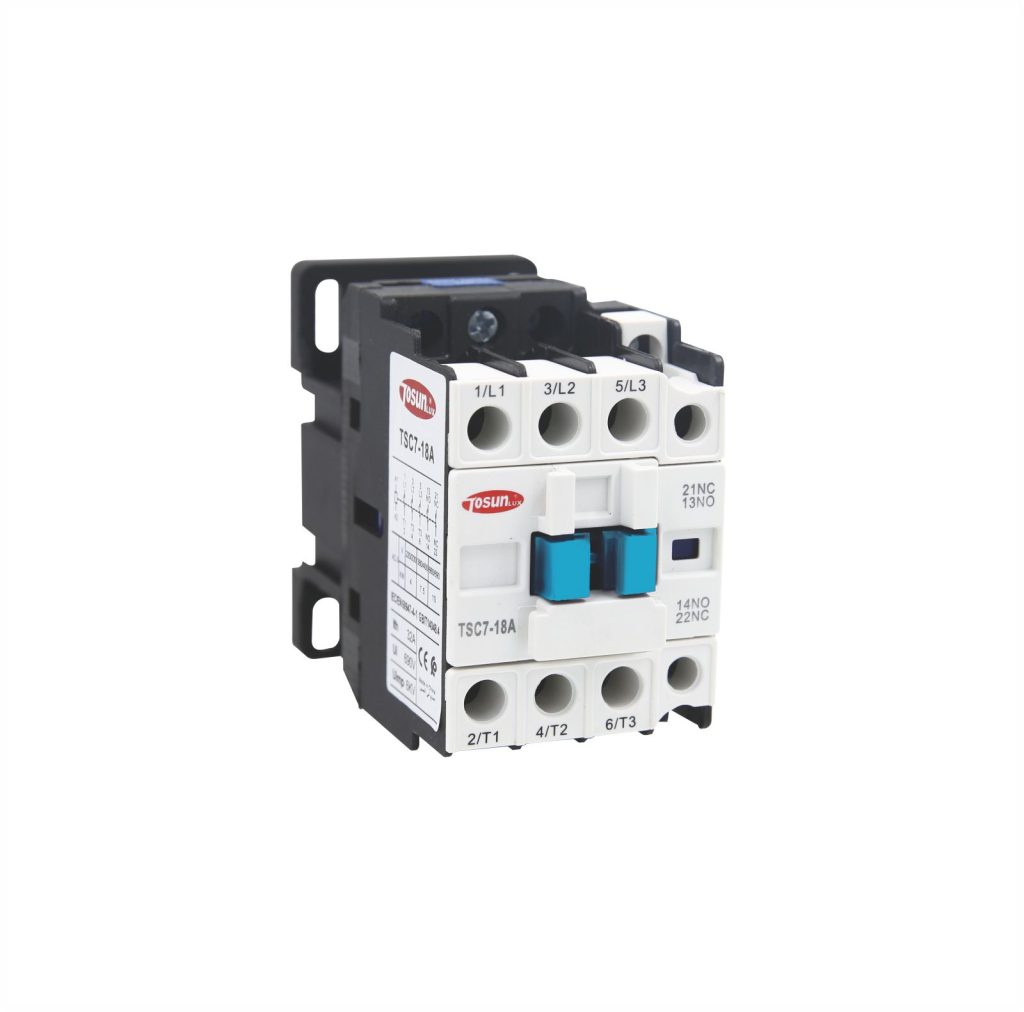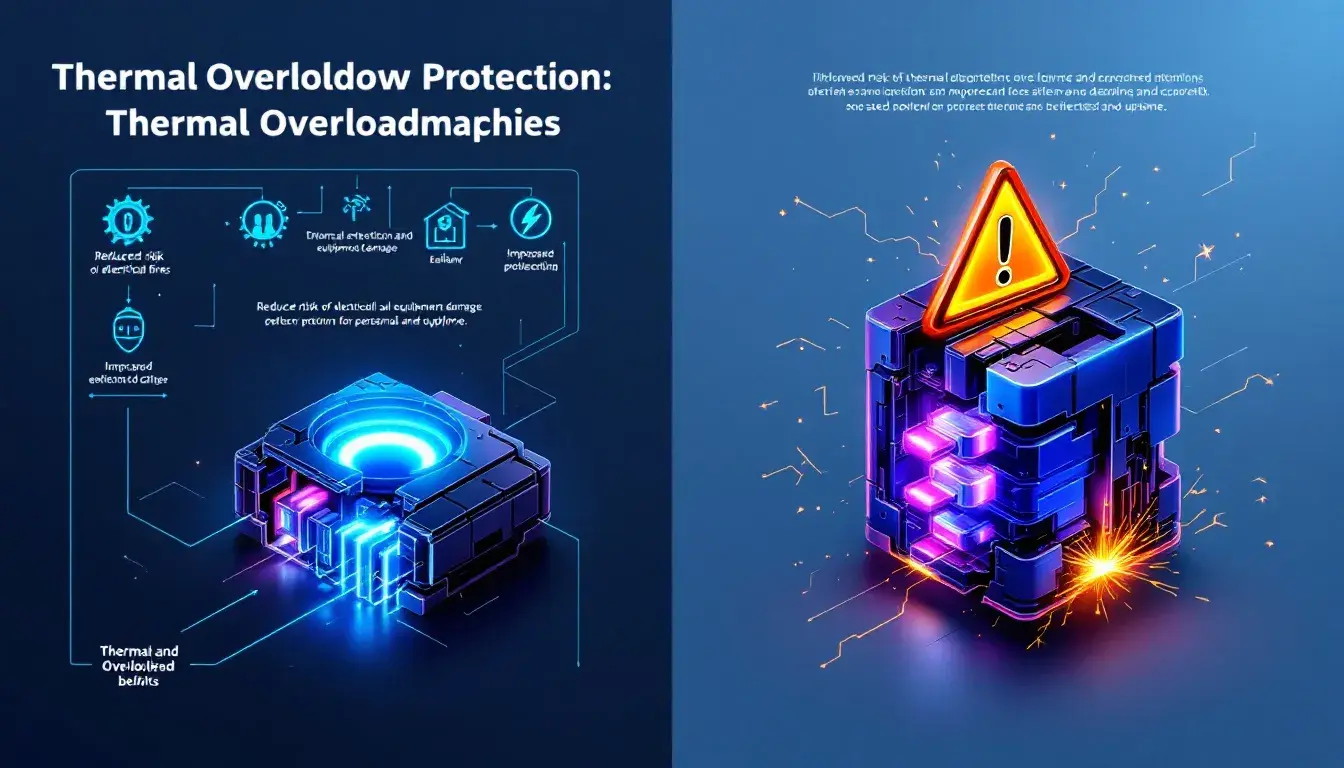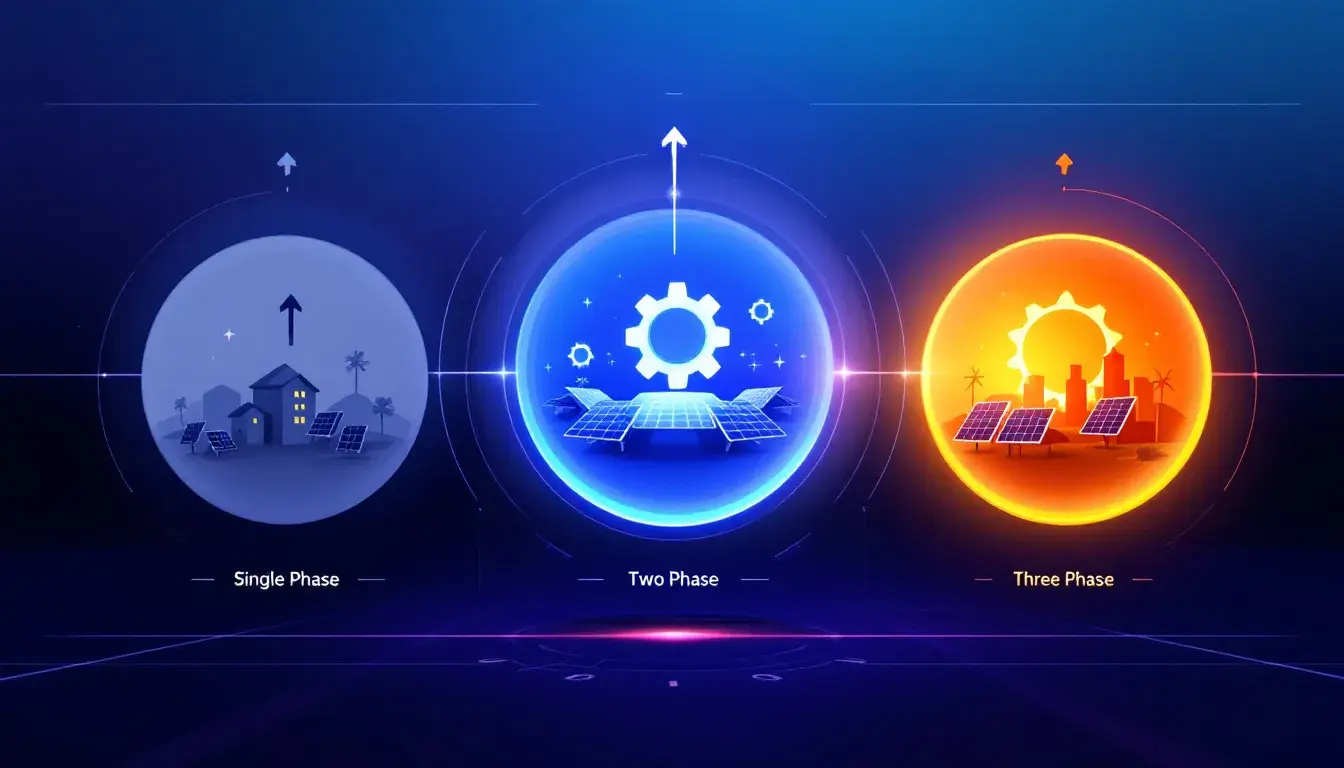Best solutions to the most common problems in the use of AC contactors
Table of Contents
ToggleAn Alternating Current (AC) contactor is an electromechanical device that allows or restricts the flow of current in an electrical system. They are typically used in HVAC (Heating, Ventilation, and Air Conditioning) systems.
The working mechanism of AC contactors
AC contactors work like a traffic signal. Just as traffic signals control the flow of vehicles at intersections, AC contactors control the flow of electricity in circuits. When a green light (energized AC contactor) allows traffic to pass, it’s like the electrical circuit is open, allowing electricity to flow. Conversely, when the red light (de-energized AC contactor) stops traffic, it’s akin to the circuit being closed, interrupting the flow of electricity.
Importance of AC Contactors in Electrical Systems
AC contactors are crucial in electrical systems. They ensure safe and efficient control of high power loads, easily turn the circuit on or off, and contribute to the overall safety of electrical systems by protecting them against faults and overloads.

Most common problems in using AC contactors and how to solve them
- Issue: AC Contactor Not Engaging
If the AC contactor is not engaging, there could be a faulty coil or electrical connection.
- Solution: Check and replace the defective coil or ensure proper electrical connections.
- Issue: AC Contactor Stuck in the Engaged Position
Sometimes, mechanical obstructions or worn-out parts may cause the contactor to get stuck.
- Solution: Remove mechanical blockages, replace worn-out components, and lubricate moving parts if necessary.
- Issue: Constant Chattering Noise from AC Contactor
Voltage fluctuations in the system might cause rapid opening and closing of contacts. This leads to constant chattering noise that may be annoying.
Solution: Minimize voltage fluctuations by installing a magnetic surge protector.
- Issue: AC Contactor Coil Burnout
Excessive electrical load or prolonged usage may lead to coil burnout.
- Solution: When buying a contactor, ensure that its size is suitable for the system it will be placed at. Reduce the electrical load to match the contractor’s capacity.
- Issue: Insufficient Power Supply
Low or fluctuating power supply may affect the contractor’s
overall performance. It may also damage the system due to overheating and increased wear of its components.
- Solution: Verify the power supply voltage and use a stabilizer to ensure a reliable and constant power supply.
Best preventive maintenance practices
It is best to do regular maintenance to avoid having the issues mentioned. Doing preventive measures regularly helps ensure that your system will function safely and efficiently. Here are some of the best preventive maintenance tips for AC contractors:
- Visual inspection
Regularly inspect your AC contractor for signs of damage, wear, and corrosion.
- Cleaning
Clean all the debris, dirt, or dust on the contactor’s surface to maintain optimal performance, safety, and a longer lifespan.
- Testing
Regularly test if your contactor is functioning properly by checking if it engages and disengages smoothly. Also, measure the voltage levels of your system to ensure they align with the contactor specifications.
- Proper ventilation
AC contactors need proper heat dissipation to keep the system from overheating. Choose an AC contactor that has a casing with ventilation features to promote natural convection. It would also help to check the contactor’s temperature regularly to monitor any abnormal increase in temperature.
- Lubrication (if applicable)
It may come to a point where some parts of the AC contactor are so stuck that lubrication is necessary. A small amount of dielectric grease can be applied to the moving parts of the contactor.
Generally speaking, AC contactors are durable and have a reasonable lifespan. However, there are some things that may cause some issues with it. Doing regular preventive maintenance is important to prevent these issues.
If you want a high-quality AC contactor, the TOSUNlux TSC-D09 AC Contactor is an excellent choice. It is suitable for circuits with a rated voltage of up to 660 V AC, a frequency of 50 Hz or 60 Hz, and a rated current of up to 95 A. The TOSUNlux TSC-D09 AC Contactor complies with IEC60947-4, an international standard published by the International Electrotechnical Commission (IEC).
Tel: +86-577-88671000
E-mail: ceo@tosun.com
Skype: tosunelectric
Wechat: +86-139 6881 9286
WhatsApp: +86-139 0587 7291
Address: Room No.1001 Wenzhou Fortune Center,Station Road, Wenzhou, China
REQUEST A QUOTE
WhatsApp us
 : +86-139 0587 7291
: +86-139 0587 7291 English
English Español
Español Русский
Русский Français
Français العربية
العربية Português do Brasil
Português do Brasil Українська
Українська Türkçe
Türkçe Polski
Polski Nederlands
Nederlands Italiano
Italiano Bahasa Indonesia
Bahasa Indonesia हिन्दी
हिन्दी اردو
اردو አማርኛ
አማርኛ Հայերեն
Հայերեն ไทย
ไทย Монгол
Монгол فارسی
فارسی Shqip
Shqip Ελληνικά
Ελληνικά


